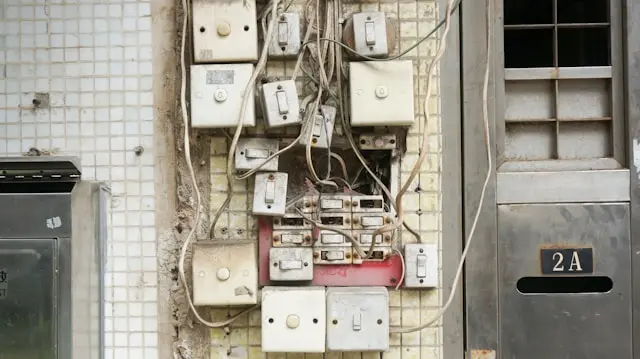Relationships, like all aspects of life, require attention and nurturing. Over time, even the strongest bonds can face challenges that test the foundation of marriage. This is where marriage counseling comes into play. It is a guiding light, helping couples rediscover their path to a harmonious and fulfilling relationship. Whether battling communication breakdowns or confronting unresolved conflicts, counseling offers a proactive approach to revitalizing the partnership. This article explores how marriage counseling can catalyze positive change, strengthening the ties that bind.
Key Takeaways:
- Marriage counseling offers tools and strategies to enhance communication and understanding.
- It provides a safe and neutral space for couples to express their feelings and resolve conflicts.
- Counseling can reignite intimacy and strengthen commitment in a relationship.
The Benefits of Marriage Counseling
Marriage counseling provides an invaluable opportunity for couples to enhance their relationship through expert guidance. A neutral counselor facilitates discussions that might otherwise lead to unproductive arguments. This environment allows couples to view their relationship from a fresh perspective, often revealing underlying issues that are difficult to address alone. Additionally, it offers practical solutions tailored to the unique dynamics of each relationship, equipping couples with tools to tackle future challenges bravely and confidently.
The personalized nature of marriage counseling means that strategies are designed to work specifically for each couple. This bespoke approach ensures constructive interactions, resulting in mutual growth. Furthermore, counseling encourages accountability, allowing partners to recognize their role in conflicts and solutions. Counseling fosters deeper comprehension, connection, and trust by bridging the gaps that lead to misunderstandings.
Enhancing Communication and Understanding
Communication is the cornerstone of any successful relationship. In marriage counseling, couples learn how to express themselves openly and effectively. Skilled therapists introduce techniques such as active listening and non-verbal communication cues, ensuring both partners feel heard and understood. By honing these skills, couples can communicate more clearly, reducing the likelihood of miscommunications that often escalate into more significant issues.
The focus on communication extends beyond mere verbal exchanges. Couples learn to better understand each other’s perspectives, fostering empathy and patience. This newfound understanding enhances the overall dynamic of the relationship, creating a more supportive and nurturing environment. Marriage counseling paves the way for a deeper emotional connection, strengthening the relationship’s foundation.
Effective Conflict Resolution Techniques
Conflicts are inevitable in any relationship, but how they are managed makes the difference between growth and discord. Marriage counseling equips couples with the skills necessary to resolve their differences constructively. Techniques such as conflict de-escalation, negotiation, and compromise are fundamental components of the counseling process.
Counselors teach couples to identify the root causes of disputes, allowing for meaningful dialogue rather than shortsighted arguments. By fostering a deeper understanding of each partner’s needs and triggers, couples can address issues without blame or resentment. This proactive approach transforms conflict from an obstacle into an opportunity for growth, solidifying the relationship.
Reigniting Intimacy and Connection
Over time, the initial spark that fueled a relationship can dwindle, overshadowed by the demands of daily life. Marriage counseling offers strategies to reignite intimacy by encouraging couples to prioritize their connection. Therapeutic exercises focus on rebuilding emotional and physical closeness, reminding couples of the passion that initially brought them together.
Counseling helps couples reconnect deeper by creating a space to focus on each other without distractions. Activities designed to foster closeness, such as shared hobbies or mindful conversations, play a critical role in this process. Couples often experience renewed energy as intimacy flourishes, bolstered by a strong, enduring connection.
Strengthening Commitment and Partnership
Marriage is a partnership that thrives on mutual commitment and shared goals. Counseling reinforces this commitment by helping couples realign their priorities and long-term objectives. Through open discussions, partners learn to honor and respect each other’s aspirations, creating a unified vision for their future.
This collaborative approach enhances the sense of partnership, motivating couples to work towards common goals. Partners nurture a resilient and adaptable relationship by supporting each other’s dreams and ambitions. As their commitment strengthens, couples often find that their relationship becomes a source of stability and joy, providing a robust foundation for their shared journey.
Conclusion
Marriage counseling is a transformative process that holds the potential to revitalize relationships. By fostering communication, resolving conflicts, reigniting intimacy, and strengthening commitment, counseling provides couples with the tools to build enduring, harmonious partnerships. As a proactive step towards addressing challenges, marriage counseling offers hope and guidance, ensuring that couples can navigate the complexities of relationships with confidence and grace. Through commitment, openness, and willingness to grow, couples can harness the benefits of counseling to build stronger, healthier, and more fulfilling bonds.



